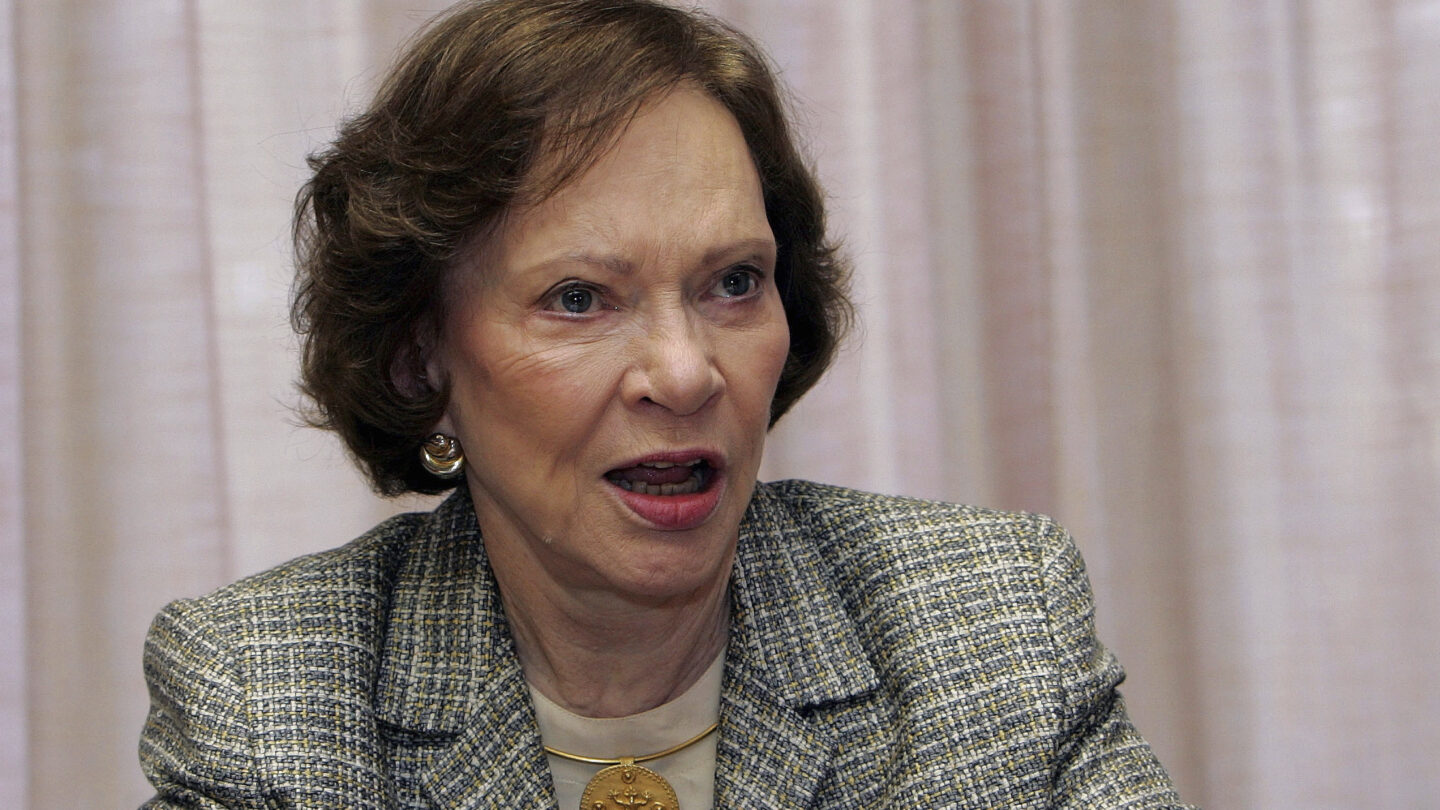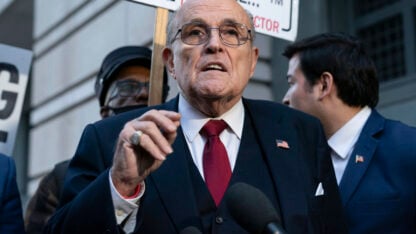The sun was shining in June 1979 as Rosalynn Carter made her way through an enthusiastic crowd in Laconia, New Hampshire.
“She shook my hand!” yelled one delighted participant.
The first lady was in the state for her husband’s reelection campaign, but this was no political rally. Instead, she was at a sprawling 75-year-old institution founded for “feebleminded” children that the U.S. Justice Department had deemed “a classic example of warehousing.” She was joined by Gov. Hugh Gallen, a kindred spirit who had been pushing to correct the deplorable conditions there and at the state’s psychiatric hospital.
“Going to a place like the Laconia State School and talking not to voters but to people dealing with a very acute issue — well, it doesn’t happen very often. It didn’t then, and it certainly doesn’t at all now,” recalled Dayton Duncan, who was there as Gallen’s press secretary.
“She could have just given a good speech about what the administration was hoping to do and left it at that,” Duncan said. “But the fact that she would go to the Laconia State School and meet with the people who work there, the children who were warehoused there and the parents, was special.”
After leaving the White House, Jimmy and Rosalynn Carter launched programs that have, among other things, monitored elections in at least 113 countries and nearly eradicated the Guinea worm parasite in the developing world. But the former president has said that The Carter Center would have been a success had it accomplished nothing but his wife’s mental health work.
That’s according to Kathy Cade, vice chair of Atlanta-based center and a longtime aide to Rosalynn Carter, and others who know the couple. They spoke to The Associated Press in the months leading up to Rosalynn Carter’s death Sunday at age 96.
“I do not think there has ever been another sort of leader in the mental health field who has had as much of an impact on mental health care and access to care and how we think about mental health and mental illness as Mrs. Carter,” Cade said. “And I think it has to do with her incredible concern about the issue and her perseverance for more than 50 years.”
What evolved into a lifelong crusade began during Carter’s 1966 gubernatorial campaign in Georgia. Almost daily, Rosalynn was approached by voters distressed about loved ones housed at an overcrowded psychiatric hospital. Early one morning, she spoke to a weary cotton mill worker who explained that she and her husband worked opposite shifts to care for their mentally ill daughter.
“The image of the woman haunted me all day,” Rosalynn Carter wrote in her 2010 book, “Within Our Reach: Ending the Mental Health Crisis.” That night, she went to her husband’s campaign rally and waited in line to shake his hand.
“I came to see what you are going to do to help people with mental illness when you are governor,” she told the surprised candidate.
Jimmy Carter responded by creating a state commission to improve services for those with mental illness. Then, as president, he created a national commission on mental health, which led to the passage of the Mental Health Systems Act of 1980, a major revamping of federal policy that sought to treat people with mental illness in their communities.
Rosalynn Carter was that commission’s honorary co-chair and a driving force behind the legislation, traveling around the country to hear from experts and everyday citizens alike and sharing her findings with Congress. Though it was effectively repealed during the Reagan administration, advocates say it created a framework for much of the progress since then.
At The Carter Center, she created a program devoted solely to mental health in 1991 and eventually established fellowships for journalists who cover the topic. Years later, she lobbied Congress to create a landmark law requiring insurers to provide equality in mental health coverage.
Those who worked with her over the decades say Carter’s accomplishments were rooted in her compassion and listening skills.
“Her power comes from her heart,” said Cynthia Wainscott, a former board chair of Mental Health America, a national nonprofit organization. “She’s very, very, very kind, and she listens to people. When you’re talking to her, there can be three conversations going on around you, but you know she’s keyed on you, and she hears you.”
She also was an effective and inspiring mobilizer with sharp instincts, Wainscott said.
Preparing for an annual mental health symposium, Carter once suggested contacting a pollster to refine a key message: that 20% of Americans will have a psychiatric disorder in any given year. The pollster conducted focus groups and found that people didn’t believe the statistic, but if it was restated as one in five Americans instead, they did.
“When you hear 20%, you have to visualize 100 people and 20 of them are sick, and it’s complex and impersonal. If you say one in five, people think about their workplace, their school, their neighborhood,” said Wainscott, who also led the National Mental Health Association of Georgia.
“If she hadn’t been in that room, none of us would have thought of asking a pollster to tell us how to phrase it,” she said. “It was brilliant.”
Journalist Bill Lichtenstein considered Rosalynn Carter “the patron saint of all who are dealing with mental health or behavioral issues.”
Lichtenstein, who runs a media production company in Boston, was an investigative reporter for ABC News when he fell ill with manic depression in 1986. He went on to produce award-winning programs on recovery from mental illness, but he still remembers feeling shunned when he disclosed his own struggles. Carter’s desire to reduce such stigma is at the heart of her accomplishments, he said.
“At the end of the day, whether it’s talking about more money for research or people with a mental health history being on a level playing field when it comes to employment or renting an apartment, the thing that’s the most insidious, difficult obstacle to all of it is stigma,” he said.
Lichtenstein serves on the board of advisors for The Carter Center’s mental health journalism fellowship program, which has provided support to more than 220 journalists from the U.S. and six other countries over the years.
Marion Scher, a freelance journalist and author in South Africa, was awarded a fellowship in 2005. Her first article, headlined “When is it more than just a bad day?” was published in a men’s health magazine along with the phone number for a mental health organization. The response, in a country where stigma remains strong, was massive, she said.
“The phone was ringing off the hook for three weeks,” she said. “They had to bring in extra counselors to man the phones.”
Scher now offers mental health journalism fellowships in South Africa, using local sponsorships. That kind of multiplier effect illustrates the impact of The Carter Center fellowships, and it wouldn’t have happened without her tenacity, Cade said.
Carter was a “woman of action” — unsatisfied with just bringing together experts for discussions, she brainstormed ways to change policy by changing attitudes, Cade said, recalling how she’d sit with her advisors and say “What can we do? What else could we be doing?”
Associated Press reporter Holly Ramer received a 2017-18 Rosalynn Carter Fellowship for Mental Health Journalism.









